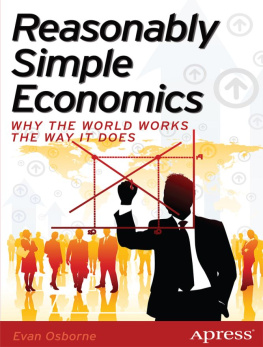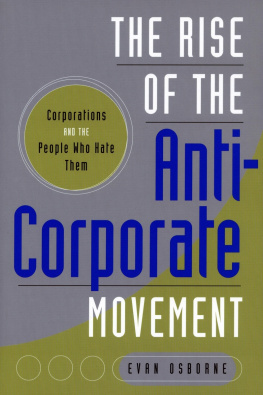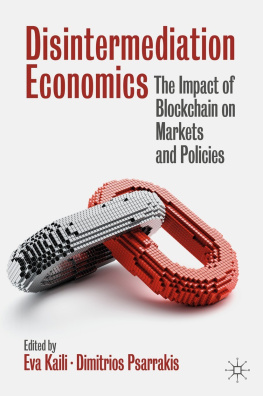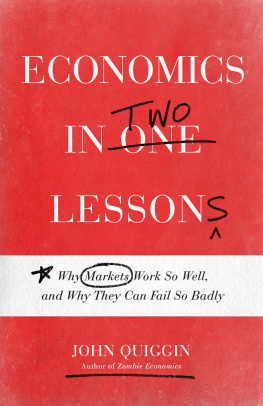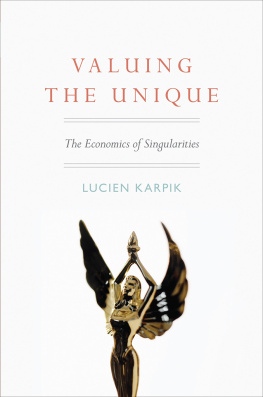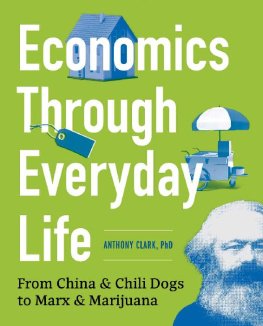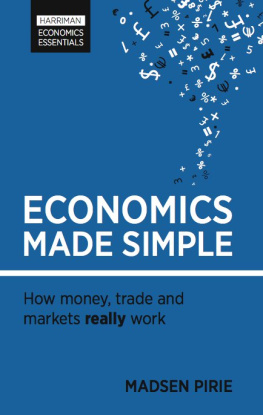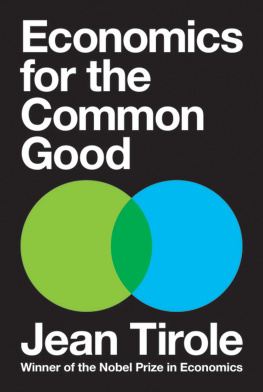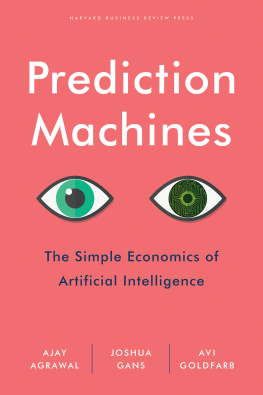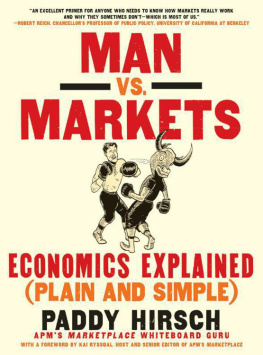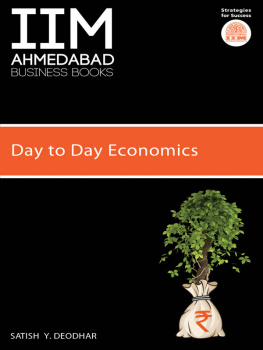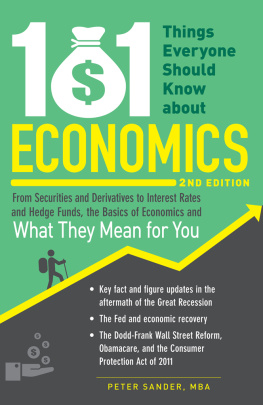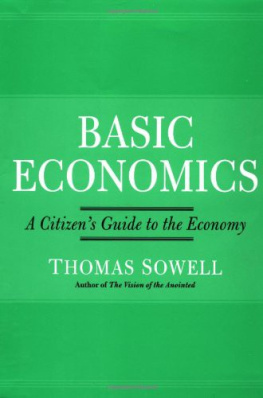About the Author
Evan Osborne is professor of economics at Wright State University. He has taught principles of economics for 20 years and has used economics to write about a wide array of topics. His current research interests involve the economics of sports and of ancient and contemporary China, and the history of individual liberty. But he is interested in everything.
Acknowledgments
First and foremost, I owe a great deal of gratitude to those students who ask the most interesting questions and challenge me to back up what I claim. Much of what I have learned about how to teach is due to learning from them. In addition, teaching and learning do not end at the classroom door, and so I have also been very lucky to have two demanding children, the evercurious Weymar and the ever-skeptical Victoria, neither of whom will ever settle for a lazy answer. I am blessed every day to be able to watch and help you grow and to prepare to direct the grand journey of your lives.
Writing a book is a pleasure, but the writers ego is far too powerful a force to allow him to properly scrutinize his own writing. I thus also owe a lot to Jeff Olson and Corbin Collins, whose meticulous attention to every word made all those words taken together easier on the reader.
Other Apress Business Titles You Will Find Useful

Deficit, 2nd Edition
Bussing-Burks
978-1-4302-4839-2 | 
Health Care Reform Simplified, 2nd Edition
Parks
978-1-4302-4896-5 | 
Broken Markets
Mellyn
978-1-4302-4221-5 |

Corporate Tax Reform
Sullivan
978-1-4302-3927-7 | 
Investing in Emerging Markets
Gamble
978-1-4302-3825-6 | 
Plan Your Own Estate
Wheatley-Liss
978-1-4302-4494-3 |

Run for Elected Officeand Win
Kemp
978-1-4302-3798-3 | 
Tax Insight
Murdock
978-1-4302-4737-1 | 
Healthcare, Insurance, and You
Zamosky
978-1-4302-4953-3 |
Available at www.apress.com
Apress Business: The Unbiased Source of Business Information
Apress business books provide essential information and practical advice, each written for practitioners by recognized experts. Busy managers and professionals in all areas of the business worldand at all levels of technical sophisticationlook to our books for the actionable ideas and tools they need to solve problems, update and enhance their professional skills, make their work lives easier, and capitalize on opportunity.
Whatever the topic on the business spectrumentrepreneurship, finance, sales, marketing, management, regulation, information technology, among othersApress has been praised for providing the objective information and unbiased advice you need to excel in your daily work life. Our authors have no axes to grind; they understand they have one job onlyto deliver up-to-date, accurate information simply, concisely, and with deep insight that addresses the real needs of our readers.
It is increasingly hard to find informationwhether in the news media, on the Internet, and now all too often in booksthat is even-handed and has your best interests at heart. We therefore hope that you enjoy this book, which has been carefully crafted to meet our standards of quality and unbiased coverage.
We are always interested in your feedback or ideas for new titles. Perhaps youd even like to write a book yourself. Whatever the case, reach out to us at editorial@apress.com and an editor will respond swiftly. Incidentally, at the back of this book, you will find a list of useful related titles. Please visit us at www.apress.com to sign up for newsletters and discounts on future purchases.
The Apress Business Team
CHAPTER
Introduction
The Value of Economics in Daily Life
You may be reading this because you have enrolled in an economic principles class, or you may be simply curious about basic economics. In buying it, you probably thought you were signing up for a discussion of inflation, unemployment, interest rates, whether the standard of living is going up or down, outsourcing, the gyrations of the stock market, and other topics that seem somehow to be related to economics and often find their way into the news.
All in good time. But before gaining any further understanding on these matters, we have to start from the foundation of the economic way of thinking. For that is what economics isnot a list of specific topics, but a systematic way of thinking about all topics. The list of concepts to which the economic way of thinking can be applied vastly exceeds the short list just mentioned. To tackle those things without mastering the economic way of thinking about them is to put the cart before the horse. This way of thinking has taken several centuries to develop and has proven its usefulness in addressing one social problem after another. But it is not the only way to think about society and how it works. As you read this, try to fit what you learn about economics into what else you have learned about the world and how to think about ithistory, philosophy, psychology, and even literature all have useful things to say about human decision making and the society that results from it.
The Foundation of Modern Economics: The Idea of Scarcity
Consider the following questions, which might seem far removed from the seemingly core economic topics in the first paragraph:
- Q1.1 Look at a photograph of a public sceneon a street, in a baseball stadiumor a private one like were much thinner then. Why have people in the United States gotten so much heavier over the years? Before you answer, realize that this is a phenomenon that is occurring not just in the U.S. but in countries all over the world.
- Q1.2 Much commentary in recent years has focused on rising inequality of income in the U.S. Despite that, a phenomenon associated with previous centuries of inequality has almost disappeared: the personal servant for a few suggestions.)
- Q1.3 Why are people in small towns generally friendlier than people in big cities?
- Q1.4 The last 50 years have seen the introduction of an incredible wave of time-saving machinery, plus an increase in wealth that allows almost everyone in prosperous countries such as the U.S. to obtain what used to be considered the basic necessities of life. And yet, according to survey data, people report that they are pressed for time and money. (You may feel the same way, despite having much more disposable income than your grandparents did.) Why?
Next page
